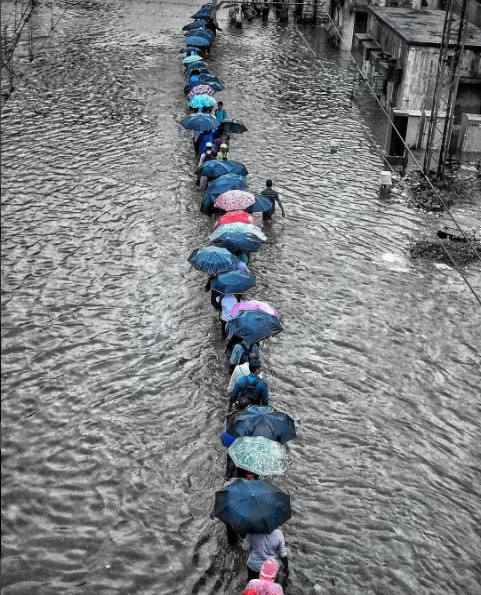Mumbai once again almost came to a standstill on account of heavy rain. But the rainfall over the last day is nowhere as overwhelming as what the city experienced on 26th July 2005 when it received almost 95 cm of rain.
The damage wrought by the rainfall on 29th August (Tuesday) could have been mitigated if the municipal authorities and state government cared enough. Given the frequent floods in the city, it is apparent that they have not cared enough over decades.
Three factors cause urban flooding- meteorological, hydrological and human.There is nothing anyone in government can do about the first two factors, but failure in the third factor is what leaves a trail of destruction.
Mumbai’s problems are unique in one sense. Reclamation of land was initially carried out to link the seven islands which form Mumbai. This was followed by continuous building activity which eventually spilled over to choke waterways which allowed water to drain during monsoon.
The city’s storm water drainage system is a network of surface drains, underground drains and canals which discharge surface run-off into the city’s creeks, river or straight into the Arabian Sea.
Perhaps the most important component of the drainage network is the Mithi river which serves as the line of demarcation between the city and its suburbs.
Mithi river has over the years been not only been encroached upon, but whatever is left is clogged with solid wastes and plastic.
With perhaps the most important channel of the city’s drainage system under siege, flooding is inevitable even if the rainfall does not breach the existing record.
Any long-term solution to Mumbai’s frequent flooding problem needs to deal with the reduction in the catchment area of Mithi river. Unless the channels are widened and the plastic menace dealt with, other efforts may be inadequate.
Mangroves which dotted the city’s coast line have largely disappeared. They once served as as an important element in absorbing water and, thereby, mitigated the impact of torrential rain. It may no longer be possible to go back to the mangrove cover which existed years ago, but it is essential to protect whatever is left.
It is simply not right that Mumbai should crumble so often. The intensity of urban flooding can be reduced.
Article Source: Times of India

